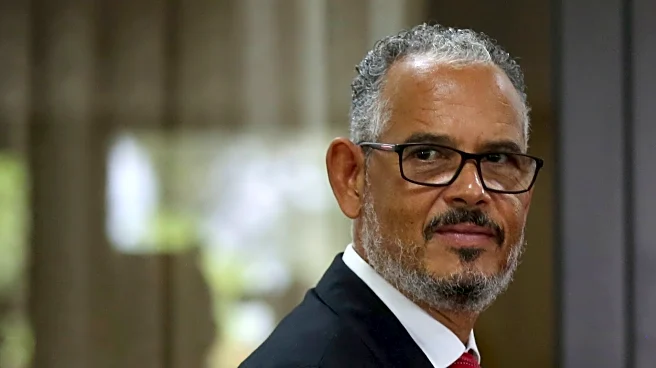What is the story about?
What's Happening?
A lyric from Taylor Swift's new song 'Cancelled!' has ignited a significant online debate and legal speculation. The phrase 'Did you girl-boss too close to the sun?' appeared on October 3, 2025, and quickly became a focal point for discussions among fans and legal analysts. The lyric is reportedly similar to a phrase used by conservative commentator Candace Owens on a podcast in January 2025, leading to questions about influence and attribution. The song references cancel culture, and the timing of its release has led to immediate reactions across social media platforms, with fans and critics dissecting its implications.
Why It's Important?
The controversy surrounding the lyric highlights the intersection of pop culture and legal issues, particularly in the realm of intellectual property and attribution. The debate has polarized fans and commentators, with some viewing the lyric as artistic expression and others as a potential legal issue. This situation underscores the power of celebrity influence and the rapid spread of information in the digital age. The outcome of this debate could have implications for how artists and public figures navigate the use of language and ideas in their work, potentially affecting future legal standards in the entertainment industry.
What's Next?
As the debate continues, there may be further developments in the legal realm, including potential depositions or subpoenas related to the broader legal dispute. Fans and media outlets are likely to continue analyzing the lyric and its origins, with possible clarifications from the artist or involved parties. The ongoing discussion may influence public perception and the narrative surrounding the song, impacting both Taylor Swift's reputation and the commentator's claims.
Beyond the Headlines
This incident raises broader questions about the nature of artistic expression and the boundaries of intellectual property. It highlights the challenges artists face in creating original content while navigating existing cultural and legal landscapes. The situation also reflects the role of social media in amplifying controversies and shaping public discourse, demonstrating how quickly narratives can evolve in the digital age.
















